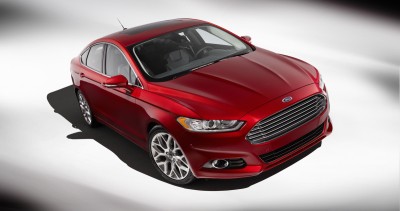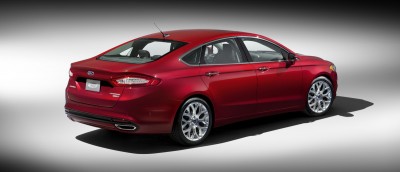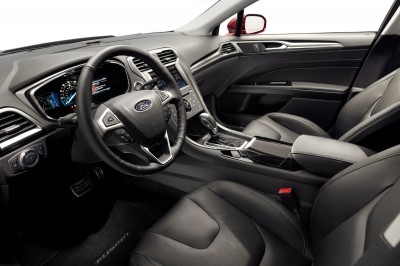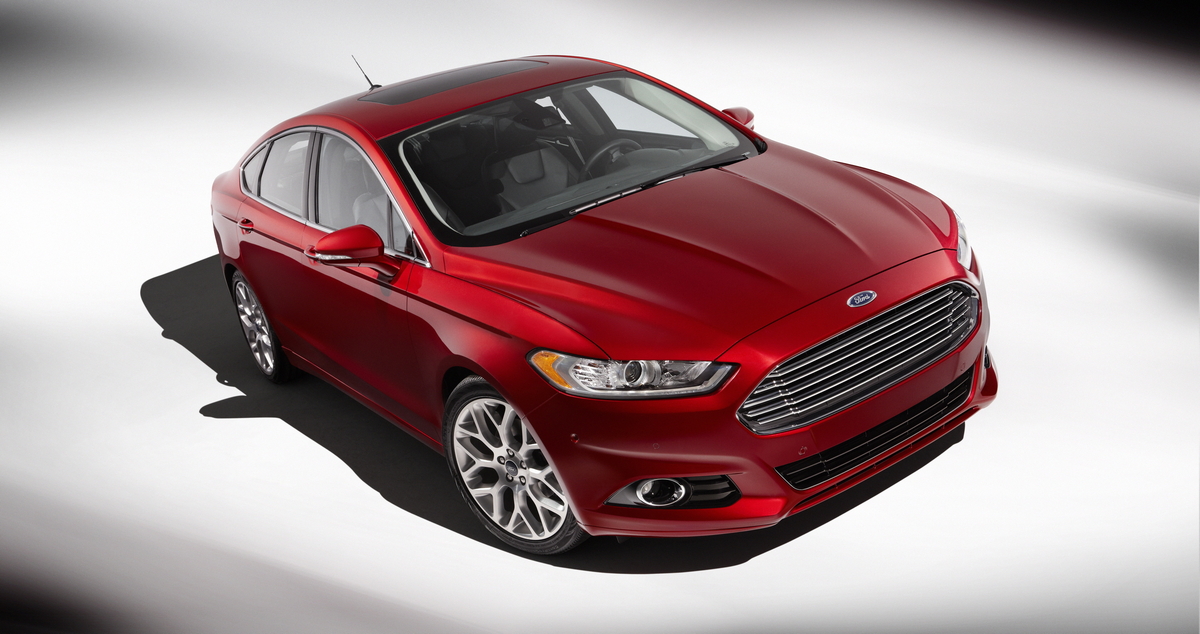 Soybeans, wheat straw, coconuts, and dandelion greens make for an interesting salad. They’re also key ingredients in one of the most outstanding cars of the year, the 2013 Ford Fusion. For those who truly want a green car, this baby more than qualifies.
Soybeans, wheat straw, coconuts, and dandelion greens make for an interesting salad. They’re also key ingredients in one of the most outstanding cars of the year, the 2013 Ford Fusion. For those who truly want a green car, this baby more than qualifies.
Recently, staff writer Casey Williams told us how the new Ford Fusion is a great combination of Mother America and Father Europe. That assessment is spot-on — and one that absolutely has no horse meat or horse waste in it.
Scientists have been busy as a bee lately, trying to devise more earth-friendly materials for all our needs. Their goal: to make door frames and dashboards that are just as sturdy as steel but weigh less and have more in common with our kitchen tables than our garbage bags.
 They’ve started with that darling bean of the faux food crowd, soy, which can be manipulated into polyols, or alcohol, which can then become a large component of the foam used throughout the automobile shaping process. This soy foam has allowed Ford to shed five-million pounds of petroleum from its annual diet.
They’ve started with that darling bean of the faux food crowd, soy, which can be manipulated into polyols, or alcohol, which can then become a large component of the foam used throughout the automobile shaping process. This soy foam has allowed Ford to shed five-million pounds of petroleum from its annual diet.
And think of this: next time you stash your school books or classical CDs in your car, you may be putting them in care of Mr. Scarecrow. Wheat straw is now being used to make a reinforced plastic for car storage bins. This manufacturing technique saves another 20,000 pounds of petroleum per year.
Love coconut water for your poolside libations but don’t know what to do with the shell once drunk? Ford and its partners are exploring ways to use coconut coir (or husks) to mold plastic parts.
And your milky-white secretions don’t have to go to waste — at least not if you’re a dandelion. Those dandy pearls are used to produce a sustainable rubber, and that rubber can be use to build cup holders, floor mats, and other car accessories that are lighter and more durable than today’s.

Here’s another way of looking at these secret ingredients: the organic material found in your 2013 Ford Fusion is the equivalent of two pairs of jeans for the average-sized adult (whatever that is), or about 31, 250 soy beans. Throw in about 40 clear plastic water bottles for the cloth seats, and you’ve got a car that brings recycling up to speed. What’s more: the covering for those seats is woven from “Omni” cloth, made from 100% recycled yarn. Thus, you can now sit on what didn’t go into that hand-knitted holiday sweater, which is probably for the best.
Over time, this kind of manufacturing eco-friendliness will likely sneak up on us. Our daily products will become more and more earth-friendly, and we may never notice.
At least not until someone offers us some edamame hummus to go with our next hybrid or electric car.
